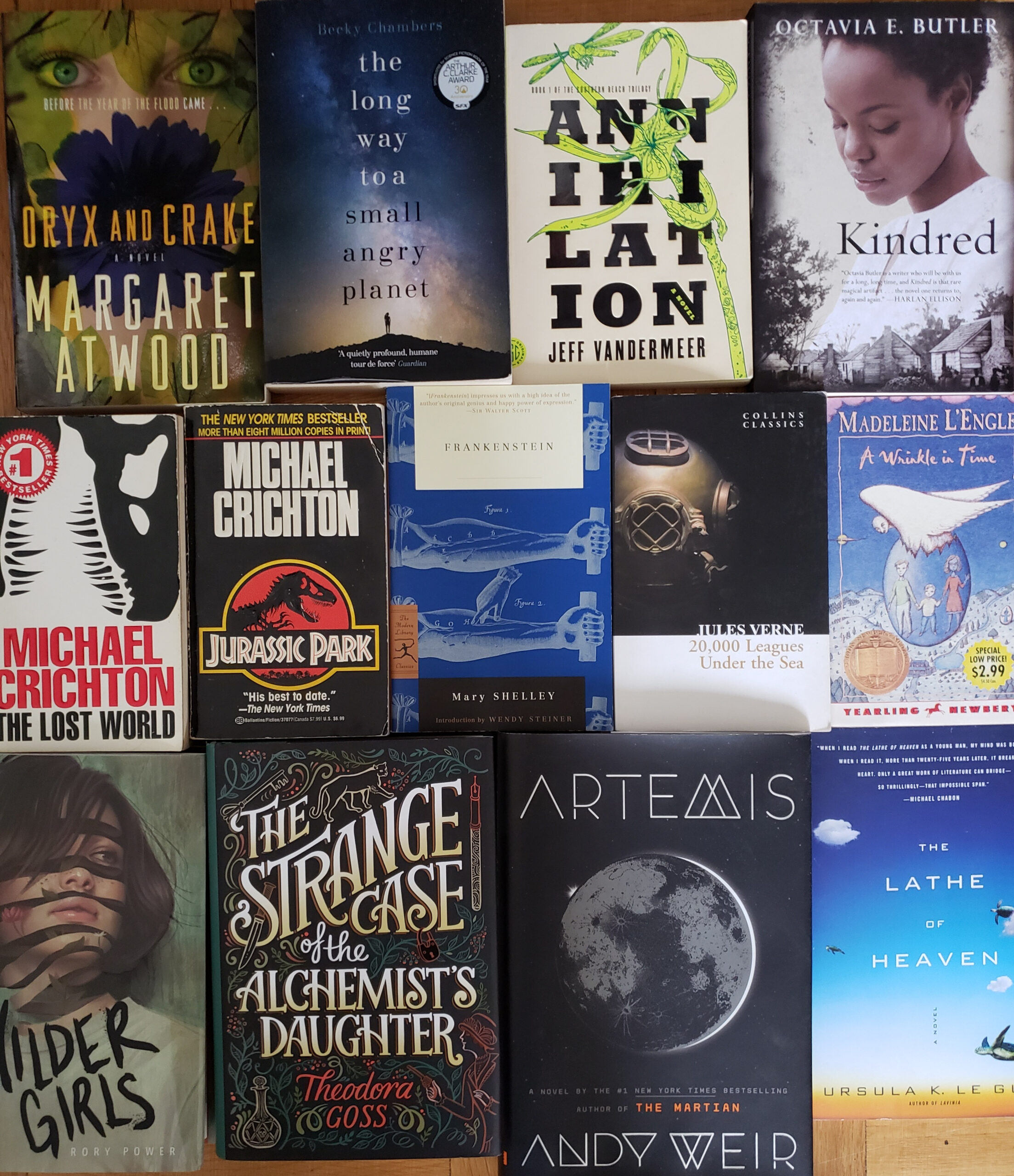Science fiction is such a massive genre that it’s difficult to know where to start. So why not start at the beginning? With the grandmother of it all, Mary Shelley.
Most people who know anything about Mary Shelley know the mythology of how Frankenstein came to be. Lord Byron invited Mary and Percy Shelley to his villa at Lake Geneva in the summer of 1816. Incessant rain kept them confined indoors and Byron eventually proposed a challenge to pass the time. They each write the scariest ghost story they can think of to present to the group. And there, Frankenstein was born.
The story is all the more incredible when you remember that Mary Shelley was only nineteen at the time. How many people can say they invented an entire genre before reaching their twenties? Probably just the one.
Monsters and Inventions
Some people would refute that Mary Shelley was the inventor of science fiction, but most are happy to give her the honour. At the very least she was instrumental in developing it and influencing what it would become.
The legacy of Frankenstein is irrefutable. It’s a classic work of Gothic literature, planted the seeds for a new genre, and can be called speculative fiction as well as horror. It’s had such an enduring impact on popular culture that even if you have no idea what Mary Shelley’s Frankenstein is about, you are probably familiar with the giant green monster with bolts in his neck. Can you imagine having that kind of an impact with a single story?

The Stigma of Genre
Okay, you say, so what? So Mary Shelley invented science fiction and Frankenstein’s monster is an enduring figure in popular culture. What of it? Well, I guess I want to say, science fiction is important. Like all genre fiction (romance, mystery, fantasy, horror), science fiction has a tendency to get pushed aside as pulpy, as though it couldn’t possibly have any literary merit.
Ian McEwan was dragged recently for “discovering” that sci-fi could work as social commentary (duh). People were angry because science fiction has been doing this since its inception in Frankenstein. Yet the stigma of “genre” remains. Margaret Atwood has insisted for years that what she’s been writing with novels like Oryx and Crake, is speculative fiction rather than science fiction. But if those speculations are scientific in nature, then, my friends, what we have is science fiction.
For the Love of Science Fiction
It’s an odd distinction to be making. One that I’ve been guilty of myself. I used to avoid the genre sections of book stores in favour of what I considered “Literary Fiction.” But it’s all just arbitrary distinctions.
What makes science fiction science fiction is not its literary merit or lack thereof, but the use of fictional science within the story. There’s a long list of so-called literary work that fits the bill: Margaret Atwood’s The Handmaid’s Tale, Kazuo Ishiguro’s Never Let Me Go, Cormac McCarthy’s The Road, Audrey Niffenegger’s The Time Traveler’s Wife, David Mitchell’s Cloud Atlas, and Emily St. John Mandel’s Station Eleven.
For a long time these arbitrary categorizations led me to believe I had no interest in science fiction. It turns out I love it. I love digging through the sci-fi section now. I love discovering new books in a genre I used to neglect. I’m discovering my love of science fiction.
Whether it’s something set in space like Space Opera by Catherynne M. Valente or The Long Way to a Small Angry Planet by Becky Chambers, or something that makes our familiar world unfamiliar. Like Vicious by V. E. Schwab or Annihilation by Jeff VanderMeer, sci-fi covers a lot of ground. It has a lot to say. Maybe it’s time we stop being so snobbish about it.


